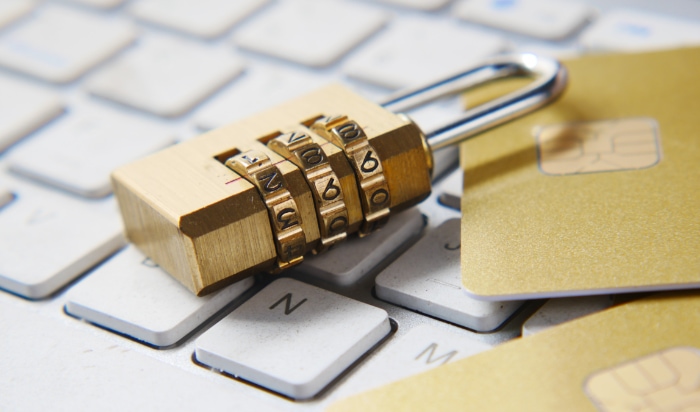Pros and Cons of a Password Manager

In a world where we have so many online personalities and accounts to manage, password fatigue is an especially prevalent problem. It happens when you have to memorize tens and hundreds of passwords for different accounts.
After some time, most people eventually revert to using the same password for every site, compromising their security.
Cloud-based password managers take care of this password fatigue by creating unique, strong passwords for your accounts and auto-filling them, so you don't have to expend your mental energy on them.
What Are Password Managers?
Password managers are applications that manage your passwords for all the sites you visit or accounts you create. The application creates new passwords for every account you have that are very unpredictable and hard to crack.
The application saves these passwords on their servers and auto-fills them whenever you open the login page.
This not only makes your accounts secure and hard to breach but makes sure you never have to reset your password or expend mental energy in recalling it;
Why You Should Get a Password Manager
In this section, we'll discuss the benefits of using a password manager to manage your online credentials.
They Reduce Password Fatigue
You no longer have to remember all your passwords as password managers autofill all your login pages.
With a password manager, you just have to remember one master password that unlocks your password safe, and you can access all your passwords from there.
This puts less strain on your brain and makes it so that you never forget your password without compromising your security.
They Make Sure You Have a Strong Password
Password managers use AI technology that generates randomized long, complex passwords for each account. This new password is tough to breach by humans and machines, and the password manager saves it to the vault so that it's available on your next login.
They Protect You From Phishing Sites
Phishing links are designed to harvest login credentials for your websites. They are disguised as a site you regularly log into, and the links are sent by a scammer pretending to be a legitimate sender, such as a distant family member, a co-worker, or an organization.
Suppose you click on one of these links. In that case, your password manager will not autofill the credentials as it does not recognize the website as the one tied to your credentials and can help you detect that it's a phishing page.
They Have Shared Account Management

Password managers allow administrators to distribute user credentials to other staff members if an employee falls ill or leaves the company. They also work across many devices, so you can access all your passwords even if you're using the new laptop.
In case of your passing, your account will be digitally inherited by your designated admin to gain access to your password safe.
There Is Less Time Wasted
With password managers, you can save much time as they auto-fill all your credentials, phone numbers, passwords, addresses, and even credit card info. This can be really convenient if you regularly sign into different accounts, making online shopping super easy.
Why You Shouldn't Get a Password Manager
They May Generate Weak Passwords
Some password managers generate weak passwords that don't use symbols or numbers, while others don't generate a password longer than ten characters. This means some passwords generated will not meet security requirements for some sites.
Although you can manage and adjust these passwords on the backend, fortunately, many password managers today utilize the best password practices and regularly update their programs to ensure the requirements are met for every site and maximum security by the passwords generated.
The Password Manager May Get Hacked
Many well-known password managers like OneLogin and LastPass have been breached and hacked in the past, which compromised their users' passwords. This has concerned many people to want to get a password manager.
Still, it is essential to know that these password-managing companies keep updating their systems and strengthening their security. There are some companies that have never been hacked, such as Bitwarden.
There Might Be a Single-Point Failure
Since your password vault can be accessed with one password, it can be extremely troubling if that master password is hacked. It puts all your other passwords and accounts at risk and ultimately leaves you vulnerable.
Luckily most password managers have robust security systems to prevent that from happening.
There May Be Web-Based Manager Security Flaws
Password managers don't always recognize web applications, and because of this, they don't have autofill credentials.
This can be a minor inconvenience at times, but if you are used to it happening and regularly recall your password, then you're more susceptible to falling for phishing pages.
Luckily more and more password managers are taking extra steps to prevent that and identify users of the phishing pages.
Do the Pros Outweigh the Cons?
Although the cons of password managers are undoubtedly real, the pros greatly outweigh the cons.
All the reasons mentioned earlier why you shouldn't get a password manager are minor inconveniences that can easily be fixed or dealt with.
You can trust a password manager such as Bitwarden, which uses industry-standard encrypted vaults and has never been hacked.
Bitwarden is extremely easy to use and free, unlike most password management services, so you don't have to think twice before installing it.
Conclusion
Password managers are an easy and secure way to store all your passwords and help you not lose them. They make sure your password is strong, complex, and difficult to bypass, and they also ensure that you don't have to memorize them as it fills in your credentials for you.
They are also a great way to protect your privacy as they minimize the chances of your account getting hacked and you giving out your credentials to phishing pages.
Password managers are a one-stop solution for all your passwords so that you don't have to worry about filling them out anymore.


